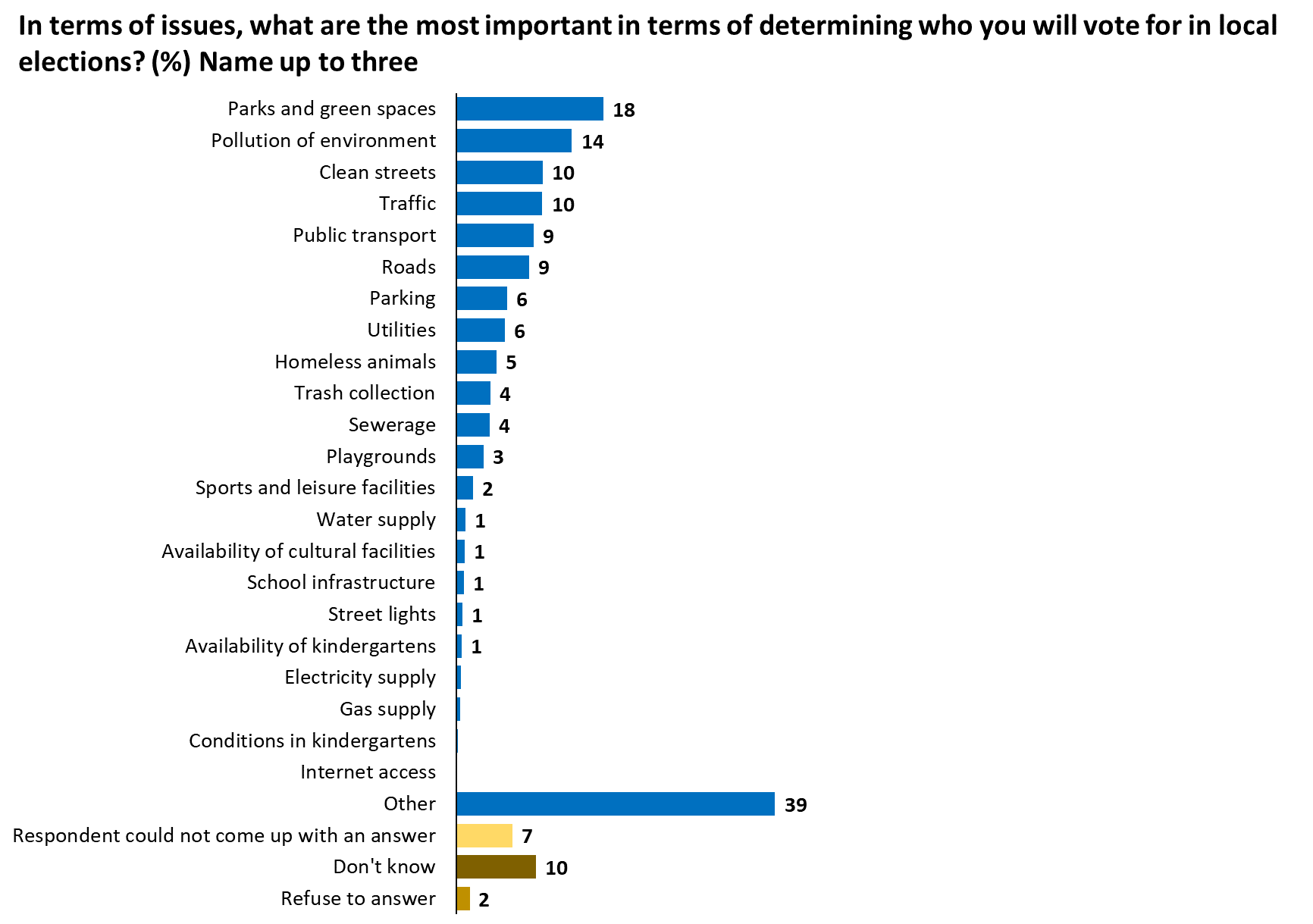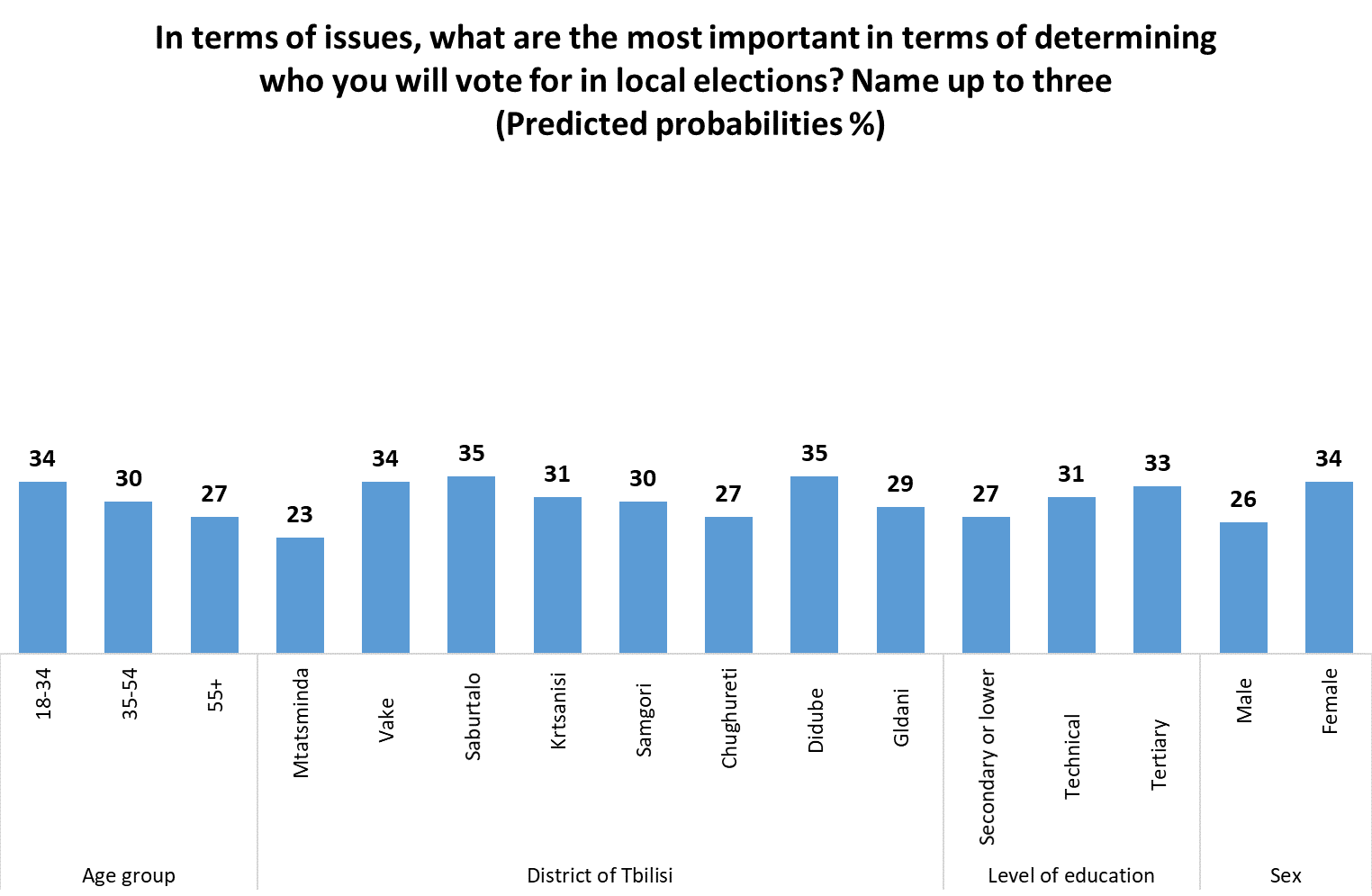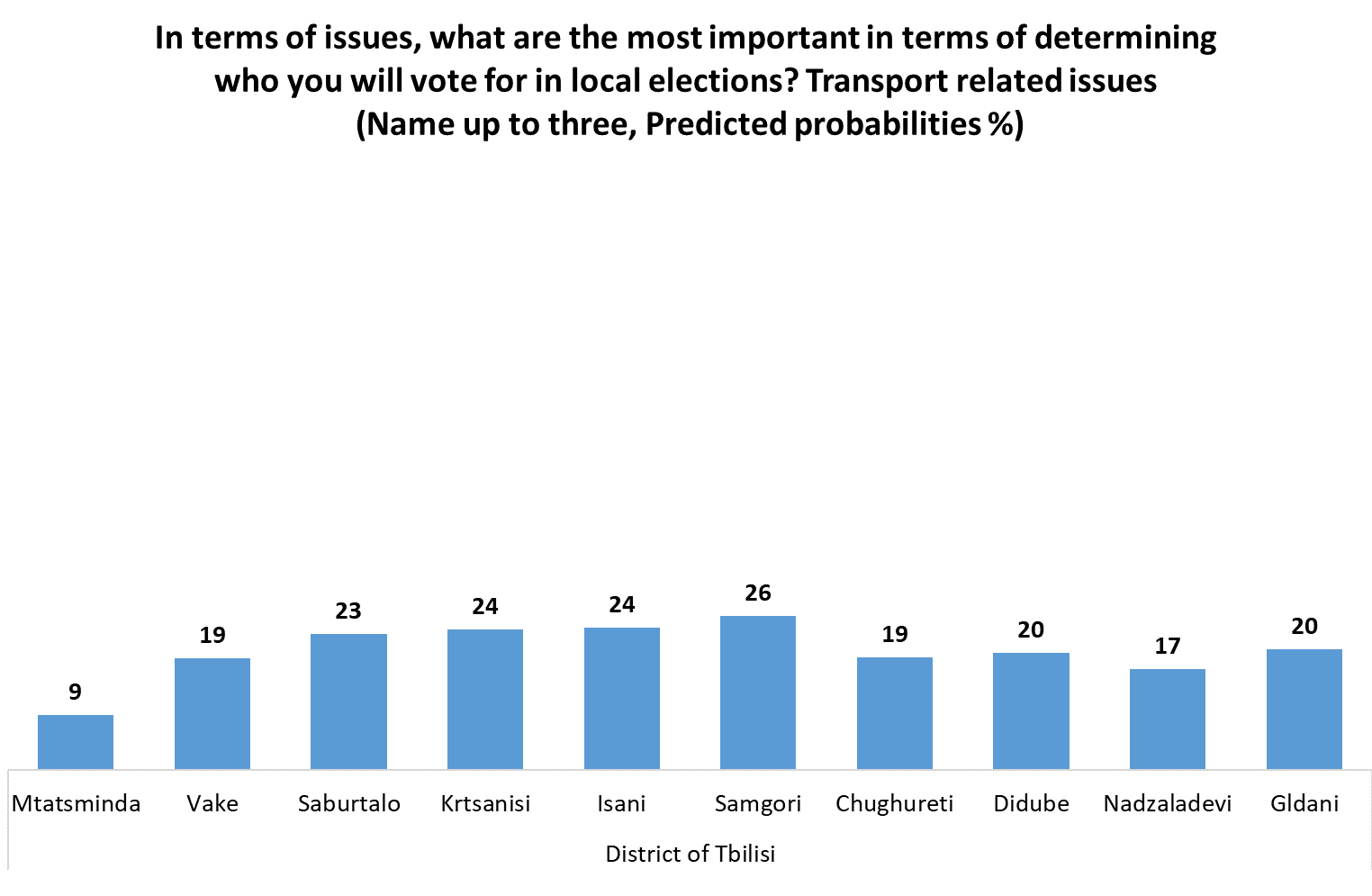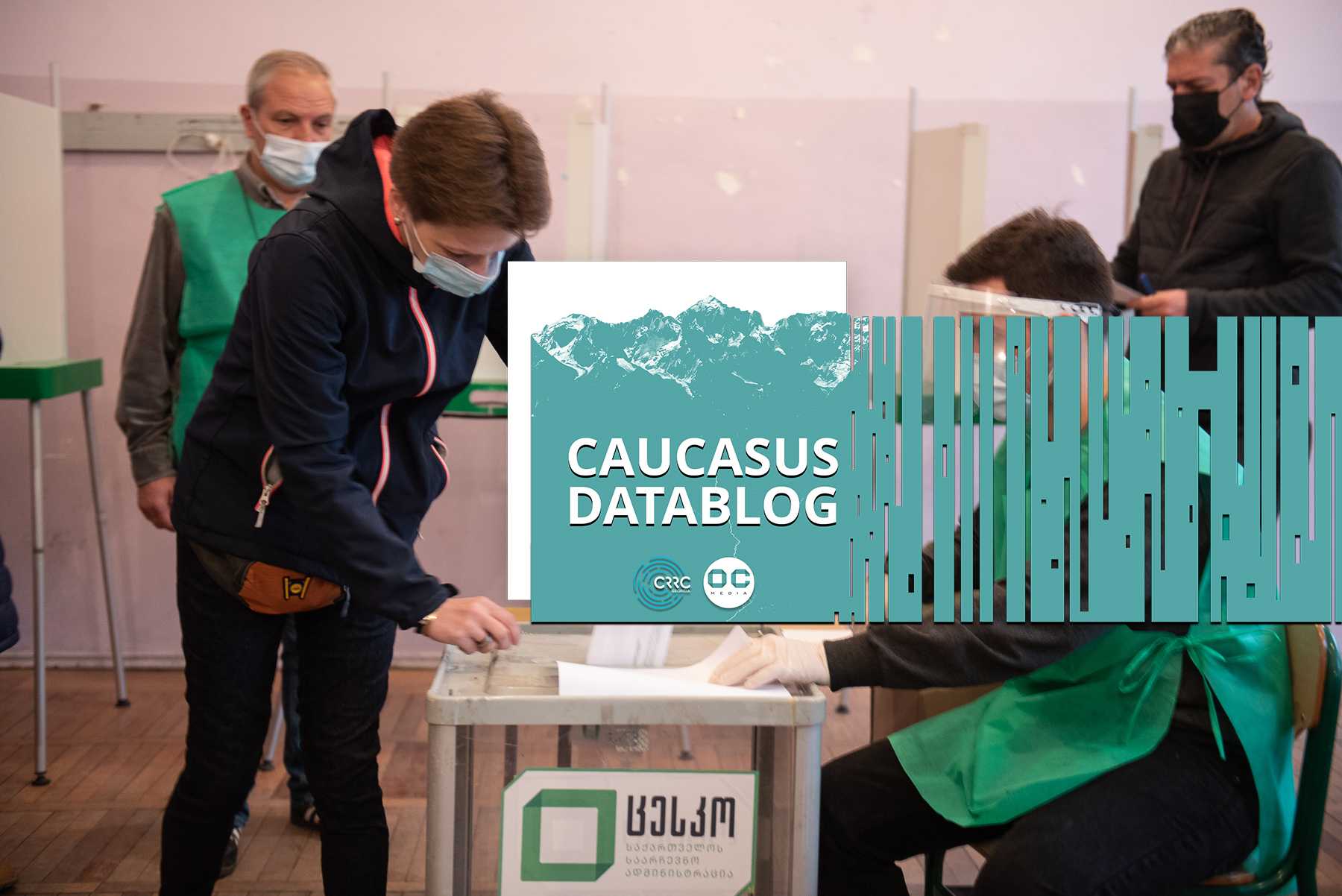
While voters in Georgia tend to look to personalities rather than policies in determining who they will vote for, policies also matter to a large number of people. But what issues are most important to voters?
On 2 October 2021, 1.8 million voters participated in Georgia’s local elections. In Tbilisi, Kakha Kaladze won the most votes in the first round, but failed to pass the 50% + 1 threshold for winning outright in the first round. This resulted in runoff elections in a number of Georgian cities, including Tbilisi, where Kakha Kaladze was re-elected with 56% of the vote.
In the second round of the campaign, a number of observers noted a shift in the discourse to a conversation around social policy.
Analysis of a recent CRRC Georgia survey funded by the National Endowment for Democracy suggests that in the context of municipal elections, environmental issues are the top policy priority voters think about when deciding who to vote for.
CRRC Georgia conducted a survey of approximately 3,000 residents of Tbilisi a month before the first round of the elections. Respondents were asked what policy issues matter to them most when deciding who to vote for.
The data shows that the most important issues people think about when it comes to deciding who to vote for are related to the environment and transport infrastructure.

These issues were present in the platforms of the mayoral candidates in the runoff elections.
Nika Melia focused on maintaining recreational areas, improving cleaning services and wage policies, and waste management.
Kakha Kaladze’s platform suggested that the City Hall would spend ₾300 million ($95 million) on environmental issues over the next four years. This included spending on renovating old parks and building new ones, forest restoration around Tbilisi, implementing waste separation, and continuing the Healthy City Programme, which includes these and other initiatives.
Both candidates had even more in their platforms on transport issues.
Further analysis which looks at who mentioned parks and green spaces, environmental pollution, and/or clean streets suggests that attitudes vary by a number of characteristics.
A regression model suggests that people over 55 were less likely to mention environmental issues than other age groups. Saburtalo, Vake, and Didube residents were significantly more likely to report they would vote for a party that would resolve environmental issues. People with a higher education and women were more likely to name environmental issues as important as well.

The next most common issues were traffic, public transport, and roads. Looking at who named at least one of these variables shows that transport issues were significantly less likely to be mentioned in Mtatsminda compared to all other districts.

As far as policy issues, people living in Tbilisi mostly think about environmental and transport issues when deciding who to vote for. Women, younger people, and people with a tertiary education are more likely to mention environmental issues. People in Mtatsminda are least likely of all districts to be concerned with public transport.
The data used in this article is available here. Replication code for the above analysis is available here.
The views presented in this article do not represent the views of CRRC Georgia, the National Endowment for Democracy, or any related entity.








